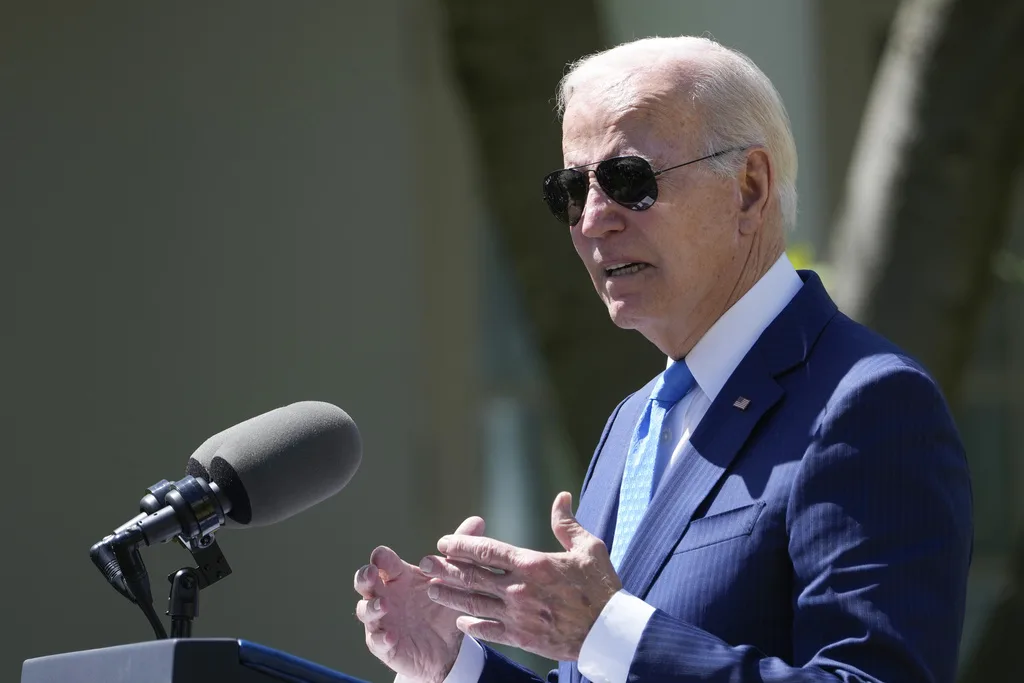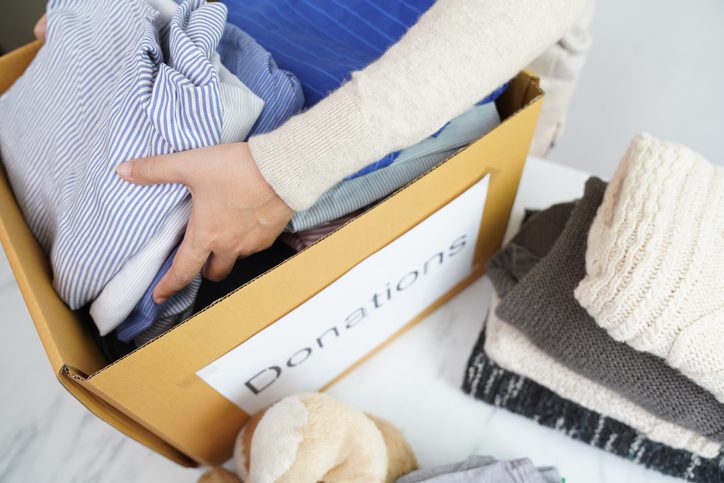
President Joe Biden speaks in the Rose Garden of the White House in Washington, Tuesday, April 18, 2023, about efforts to increase access to child care and improve the work life of caregivers. (AP Photo/Susan Walsh)
The Biden administration on Thursday announced a new rule that will reduce child care costs for more than 100,000 American families over the next few years.
The actions proposed on Thursday will cap child care copayments at 7% of a family’s income for those who get federal child care assistance via the Child Care and Development Fund (CCDF).
The measure will also make it easier for states to eliminate co-payments for certain populations, such as for families with incomes below 150% of the poverty level, families of children with disabilities, children in foster care, and children experiencing homelessness.
Co-pays will also be capped for those who are a part of Head Start and Early Head Start programs, which are free, federally-funded programs that provide education, health, and social services to eligible families.
According to the Department of Health and Human Services (HHS), child care for one child should cost about 7% of a total household income, but a 2024 survey found that families spend an average of 24% of their income on child care.
“Child care is a necessity for most working families across the country,” HHS Secretary Xavier Becerra said on Thursday. “When families have access to affordable, quality child care, they can pursue job opportunities, cover other basic needs, and go to work knowing their children are safe. That’s why the Biden-Harris Administration has made investments in early care and education a top priority—and why we will continue to take actions to support families across the country.”
The new rule announced Thursday will also require states to make applications for child care subsidies more accessible by making them available online and on mobile devices.
In an effort to streamline these applications, the Biden administration is planning to use family eligibility for other social service programs as an indicator that a family qualifies for child care aid. For example, if your family already qualifies for Supplemental Nutrition Assistance Program (SNAP) benefits, there’s a good chance you’ll also qualify for child care help via this new rule.
The actions announced last week will also help support child care providers, as the new regulations will require states to pay them based on enrollment, instead of attendance, which will in turn keep more child care centers open. When financial support is given to a center based on attendance, providers only get paid for the days a child is present. According to the Center for American Progress, this causes providers to incur greater costs.
States will also be required to pay child care centers before they offer services and to pay them on time; currently, only 4% of home-based providers and 11% of center-based providers participating in the CCDF program get paid on time.
The rule will go into effect on April 30, but states will now go through a planning process where they will outline how they plan to comply with these new regulations; they can apply for a two-year extension, and in some states, it might take until 2026 for these changes to be fully implemented.
“President Biden and I believe that every family in our nation should be able to access affordable child care,” Vice President Kamala Harris said in a statement about the rule. “President Biden and I will continue fighting to cap child care costs at $10 a day for millions of American families and make preschool free for all four-year-olds as we once again call on Congress to get it done.”

‘I’m going to get up and fight’: Meet Gay Valimont, the FL Democrat running for Matt Gaetz’s seat in Congress
The gun violence prevention activist running for Congress in a special election on April 1 shared with Floricua her plans to provide Floridians with...

What Trump’s alliance with tech billionaires signals for everyday Floridians
Elon Musk, Jeff Bezos and Mark Zuckerberg, who top the list of the world’s wealthiest people, sat behind Trump as he took his oath of office as...

5 places in Florida to donate clothes, shoes, and more
Decluttering your home can provide such a satisfying feeling of accomplishment. After sorting through all of your belongings and determining what...

8 Orlando hotels that pack as much fun as the theme parks
With waterslides, family arcades, playgrounds for the kids, and spas for mom and dad, these Orlando hotels will make your vacation unforgettable!...



